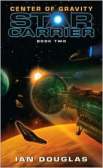 India one hundred years after nationhood is divided into multiple states. The monsoon has failed in the past several years, heralding an impending war over water between Bharat and neighbouring Awadh. Bharat is not a signatory to the international Hamilton accords limiting the intelligence of AIs, choosing instead to allow some development and self-police through its Krishna Cops. Bharat is a haven for datacenters but there is always the risk of a rogue AI ruining everyone’s whole day. Meanwhile, AIs are the actors in India’s premiere soap opera Town and Country, which harbours deeper complexities than anyone imagines.
India one hundred years after nationhood is divided into multiple states. The monsoon has failed in the past several years, heralding an impending war over water between Bharat and neighbouring Awadh. Bharat is not a signatory to the international Hamilton accords limiting the intelligence of AIs, choosing instead to allow some development and self-police through its Krishna Cops. Bharat is a haven for datacenters but there is always the risk of a rogue AI ruining everyone’s whole day. Meanwhile, AIs are the actors in India’s premiere soap opera Town and Country, which harbours deeper complexities than anyone imagines.
The world of River of Gods is immensely detailed, chaotic and complex. Reading the first third of the book leads the reader into massive culture shock as he is forced to navigate the storylines of multiple complex characters. The characters are many. Tal, the “neut”, who has surgically eschewed gender and risks persecution by a mob too easily turned to violence. Mr. Nandha, a Krishna Cop bound to his duty. Lisa Durnau, a cosmologist who researches the structure of universe, only to find that the reality is far more intriguing and disturbing. Thomas Lull, Durnau’s mentor, who is sought out by a mysterious woman who knows everything about everyone and can control machines with her mind. Vishram Ray, the scion of a powerful family who escaped to be a comedian in Scotland and has now been forced back into the family business. And many more major and minor.
It is sometimes tough going through the first half of the book, as there seems to be no real story, but as the novel progresses the plotlines become more defined and come together. The underlying theme is the nature and meaning consciousness and intelligence, or “the meaning of life,” if you will.
The final triumph of understanding is deeply rewarding to the reader. Having said that, I did feel that the book was overlong and that some of the secondary plotlines could have been culled, no matter how much Mr. McDonald’s dazzling prose is a pleasure to read.
























 On 14 December, 1973, Gene Cernan re-entered the Lunar Module Challenger after the third and final moonwalk of Apollo 17, the final Apollo Moon Mission. It was the culmination of a lifetime’s aspirations, first as a US Navy Pilot, then as an Astronaut. This is his story, told in his own words.
On 14 December, 1973, Gene Cernan re-entered the Lunar Module Challenger after the third and final moonwalk of Apollo 17, the final Apollo Moon Mission. It was the culmination of a lifetime’s aspirations, first as a US Navy Pilot, then as an Astronaut. This is his story, told in his own words.













